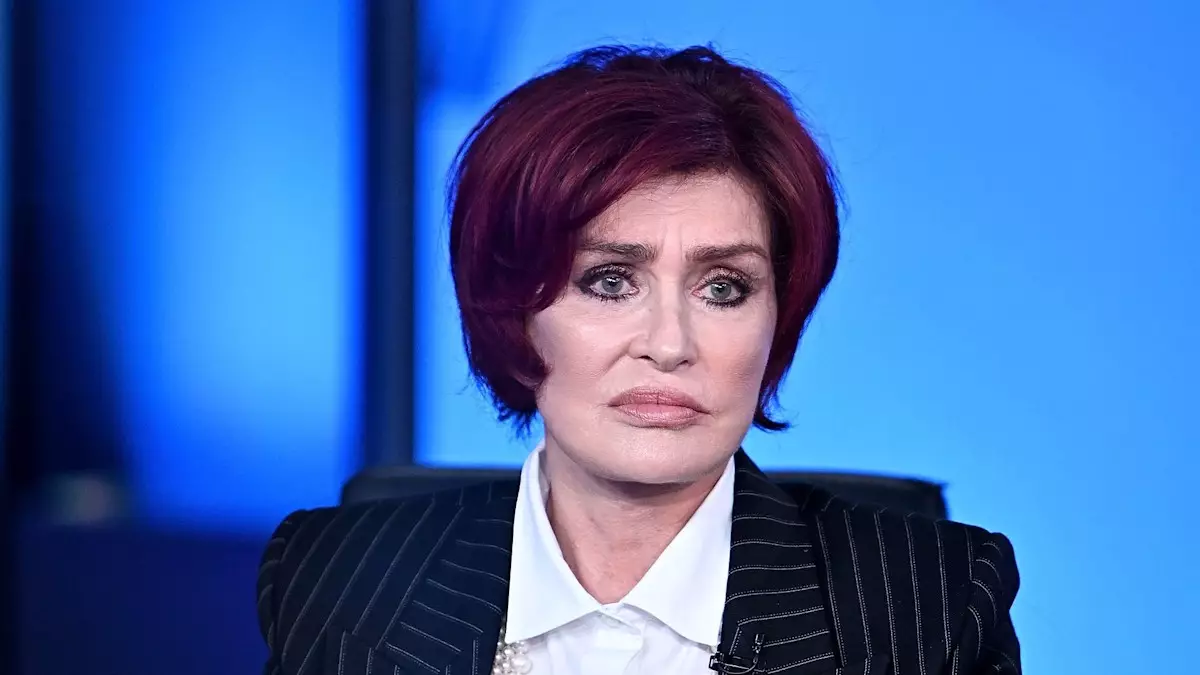In a poignant and stirring acknowledgment, Sharon Osbourne has expressed her sadness over the premature loss of former One Direction member, Liam Payne. Her heartfelt message exposes the often-overlooked pressures faced by young artists entering the spotlight far earlier than they are equipped to cope. As an industry veteran and a judge on the talent show The X Factor, Sharon’s perspective sheds light on the systemic failures within the music industry that inadvertently leave young stars vulnerable to the pitfalls of fame.
Sharon’s emotional tribute reveals the depth of her sorrow: “Liam, my heart aches. We all let you down.” These words encapsulate a myriad of unresolved feelings, pointing to a failure of support and guidance for an artist who was merely a teenager when thrust into one of music’s most demanding roles. The weight of expectation placed on Liam, coupled with the absence of a solid support network, paints a grim picture of what it means to navigate the treacherous waters of celebrity culture.
Liam’s rise to fame alongside his One Direction bandmates—Harry Styles, Niall Horan, Zayn Malik, and Louis Tomlinson—was emblematic of a new age in pop culture. Formed during the 2010 season of The X Factor, the group quickly transformed from hopeful contestants to one of the world’s foremost boy bands. Despite finishing third on the show, One Direction’s impact on the music industry was monumental. Their debut single, “What Makes You Beautiful,” paved the way for five chart-topping albums and accolades including seven BRIT Awards.
However, this meteoric ascent came with an arduous price. Fame does not guarantee immunity from challenges; rather, it amplifies them. Sharon’s lament, “Where was this industry when you needed them?” resonates deeply, highlighting the collective responsibility of the music industry to support its talent. It raises a troubling question: why was there a lack of infrastructure to protect young stars like Liam?
Liam often found himself grappling with the darker aspects of fame. As his success soared, he openly acknowledged the tumultuous journey that included personal battles with alcoholism. In a candid conversation on The Diary of a CEO podcast hosted by Steven Bartlett, Liam spoke about hitting “rock bottom” during the height of One Direction’s success. He noted that the pandemic exacerbated his struggles, echoing the hardships faced by many during that period.
In 2023, Liam offered a glimmer of hope to his fans by announcing his near six-month sobriety after spending extensive time in a rehabilitation facility. This open dialogue about his struggles was not only brave but also reflective of a broader narrative that many in the industry face. Despite fans’ hopes for a better trajectory in his life, the tragic end of Liam’s journey underscores the harsh realities that lie beneath the glimmer of fame.
Sharon Osbourne’s tribute ignited crucial conversations surrounding the mental health and welfare of young artists. Liam’s struggles serve as a stark reminder of the industry’s obligation to protect its stars, particularly those who begin their careers at such a tender age. The overwhelming pressure of instant fame and success can often lead to devastating consequences, and the music industry must confront its role in perpetuating these challenges.
Sharon poignantly concluded her tribute with, “rest in peace, my friend.” This farewell resonates not only with his fans but also offers an unsettling reflection on the music industry’s responsibilities. Liam’s story is not just one of talent unfulfilled but a stark reminder of how we must better care for the young individuals who dedicate their lives to entertain us.
In the end, Liam Payne’s tragic departure is a clarion call for change within the music industry, urging everyone to prioritize the mental well-being of artists navigating the precarious arena of fame.

